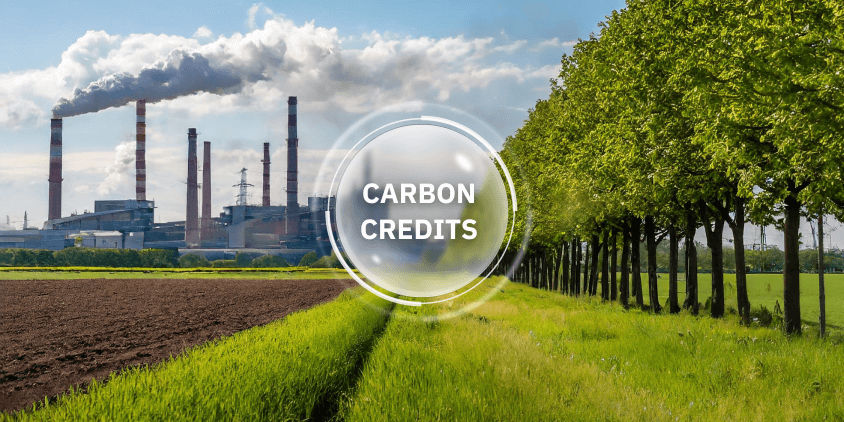The Ministry of Natural Resources and Environment is currently seeking feedback on a draft decree that would amend and supplement several articles of Government Decree 06/2022/ND-CP dated January 7, 2022, which regulates the mitigation of greenhouse gas (GHG) emissions and the protection of the ozone layer. The amendments include new provisions related to carbon credit trading.
Expanding the Scope of Carbon Market Participants
According to Article 16 of Decree 06, there are three types of entities that can participate in the carbon market: 1) entities required to conduct GHG inventories; 2) organizations implementing domestic and international carbon credit exchange and offset mechanisms; and 3) other organizations and individuals involved in investing and trading in GHG emission quotas and carbon credits.
However, these regulations do not specify the entities eligible to participate in GHG emission quota trading or carbon credit trading.

Vietnam to Establish Carbon Credit Exchange |
Regarding quota trading, the Ministry of Natural Resources and Environment (MONRE) notes that different countries have varying regulations on the entities allowed to participate in quota trading based on their management objectives. For example, the European Union does not restrict participation, while South Korea only allows entities allocated quotas and a limited number of agencies and organizations to establish the market. China, on the other hand, limits participation to entities allocated quotas.
In Vietnam, the carbon credit trading market has been active in terms of over-the-counter (OTC) transactions, while the GHG emission quota trading market is still under development.
Therefore, to enhance the stability of the market, MONRE proposes amending Article 16 to expand the scope of entities eligible to participate in the domestic carbon market.
The first category of entities eligible to participate in GHG emission quota trading would be those allocated GHG emission quotas.
The second category of entities eligible to participate in carbon credit trading would include: entities allocated GHG emission quotas; organizations with programs or projects under carbon credit exchange and offset mechanisms; and organizations and individuals involved in carbon credit trading.
New Provisions on Carbon Credit Exchange and Offset Mechanisms
According to Article 21, Clause 2, MONRE is responsible for regulating the implementation of carbon credit exchange and offset mechanisms, including both domestic and international mechanisms.
Based on international experience, MONRE has assessed that establishing a domestic carbon credit exchange and offset mechanism is crucial for developing a voluntary carbon market and supporting the compliance carbon market. This will encourage investment in GHG emission reduction projects.
To implement projects under carbon credit exchange and offset mechanisms, MONRE believes it is necessary to introduce regulations on the approval and recognition of methodologies, project concept approval, project approval, and carbon credit issuance.
Currently, Decree 06/2022/ND-CP does not specify the responsibilities of the management agencies responsible for these activities. Therefore, MONRE proposes adding Article 20, which would assign the relevant line ministries the responsibility for recognizing methodologies, approving project concepts and projects, and issuing carbon credits in line with their responsibilities for organizing MRV (monitoring, reporting, and verification) at the sectoral and facility levels within their respective jurisdictions.
To ensure the統一管理 of quotas and carbon credits, MONRE proposes that the National Registry System be expanded to include carbon credit transactions.
New Provisions on International Carbon Credit Trading
In the draft decree, MONRE also proposes adding regulations on the implementation of bilateral carbon credit exchange and offset mechanisms under Article 6.2 of the Paris Agreement.
“This is a new provision that arises from practical needs and the negotiation process for Article 6 of the Paris Agreement,” MONRE explains.
Although regulations on the transfer of carbon credits between countries have not yet been finalized, several countries (Singapore, South Korea, Australia, Switzerland) have expressed interest in signing bilateral agreements with Vietnam to implement carbon credit generation projects and transfer carbon credits internationally to contribute to the achievement of their nationally determined contributions (NDCs). It is necessary to identify the sectors and emission reduction measures eligible for international carbon credit trading, but there are currently no regulations on this matter.
Therefore, MONRE believes that, to provide a basis for bilateral credit trading, it is necessary to introduce regulations on the procedures and processes for implementing carbon credit generation projects under international bilateral carbon credit exchange and offset mechanisms. Additionally, a list should be compiled based on the conditional GHG emission reduction measures (with international support) included in Vietnam’s NDC and the proposals of the relevant line ministries.
New Provisions on the Carbon Exchange
Article 21, Clause 1 of Decree 06 currently stipulates that the Ministry of Finance is responsible for establishing and managing the carbon credit exchange and issuing regulations for the financial management of carbon market activities. MONRE is tasked with organizing pilot operations and subsequently operating the carbon credit exchange to manage and monitor the carbon market.
However, Decree 06/2022/ND-CP does not provide detailed regulations on the management and operation of the carbon exchange. Therefore, MONRE proposes adding provisions on the responsibilities of the relevant entities involved in managing and operating the exchange, in line with the contents of the Development Plan for the Carbon Market in Vietnam.
The draft decree also amends the regulations on GHG emission quota and carbon credit trading on the carbon exchange.
Article 19, Clause 3, stipulates that GHG emission quota and carbon credit trading on the domestic carbon exchange includes activities such as auctions, transfers, borrowing, surrendering of quotas, and using carbon credits for offsetting. However, it does not provide detailed specifications on the timing and procedures for these activities.
The draft decree provides more detailed regulations on these activities on the carbon exchange, including: buying, selling, and auctioning of quotas, as well as buying and selling of carbon credits on the carbon exchange; and transferring, borrowing, surrendering, and offsetting of quotas through the National Registry System.
Luong Bang






































